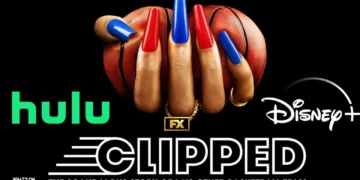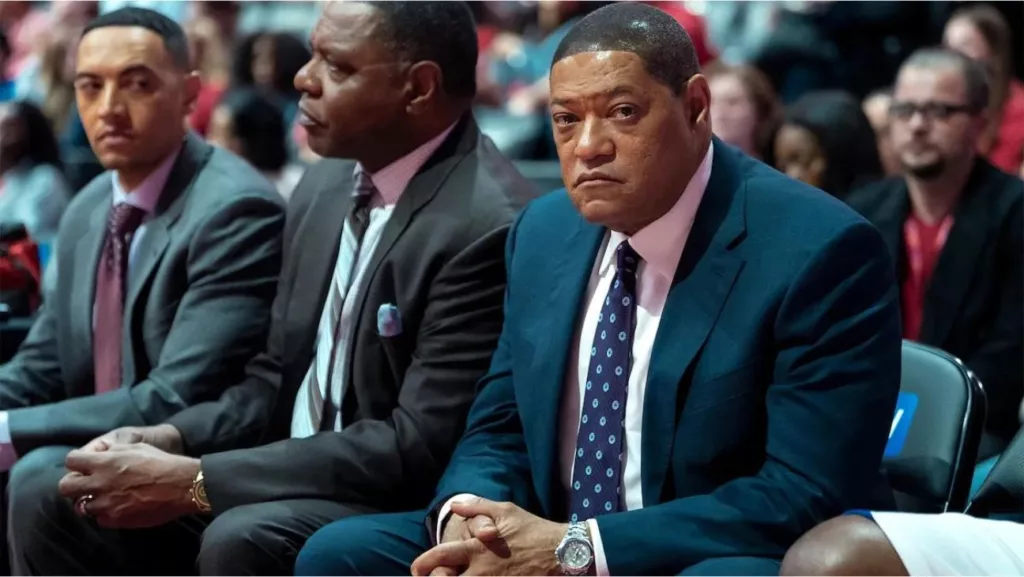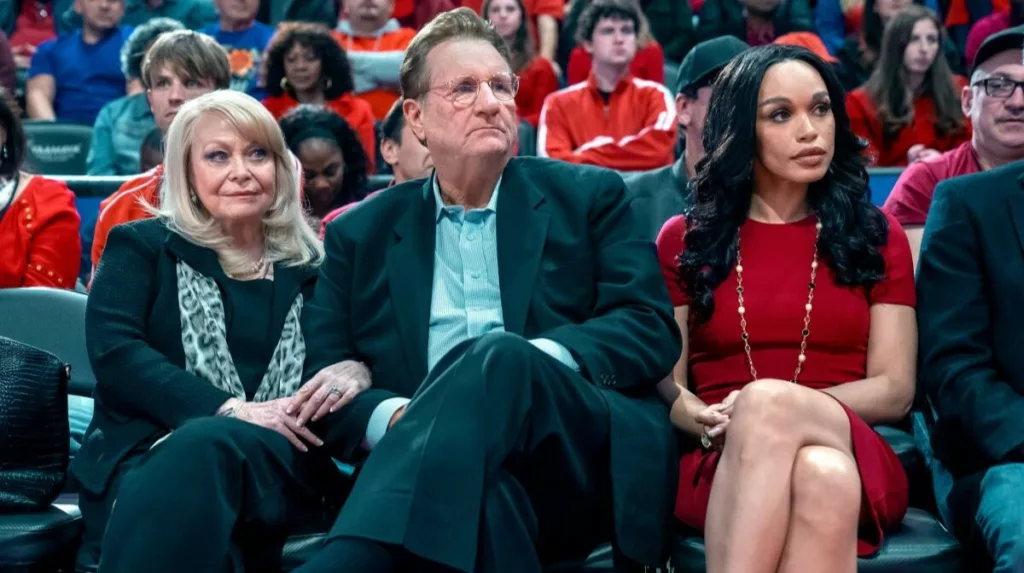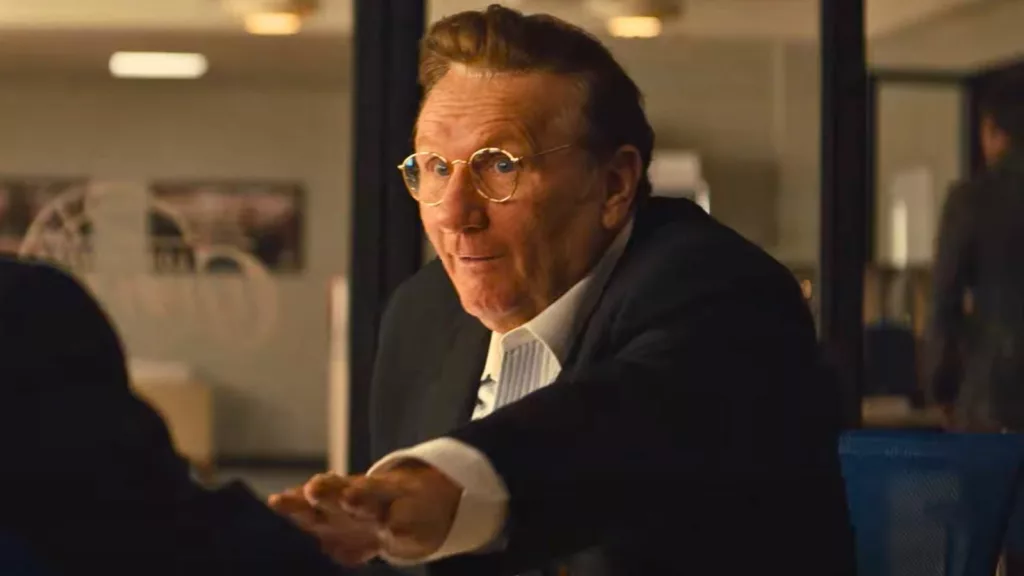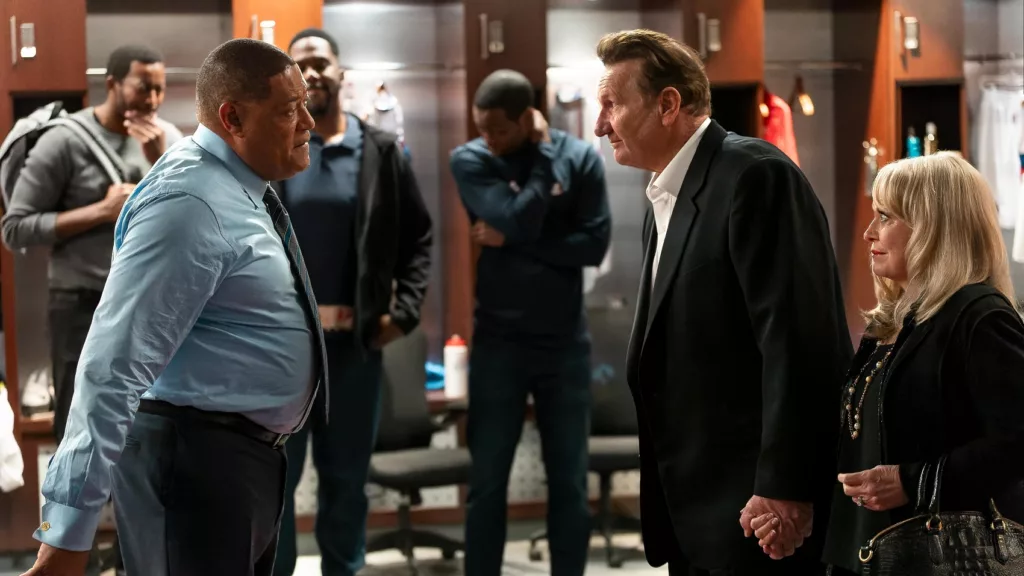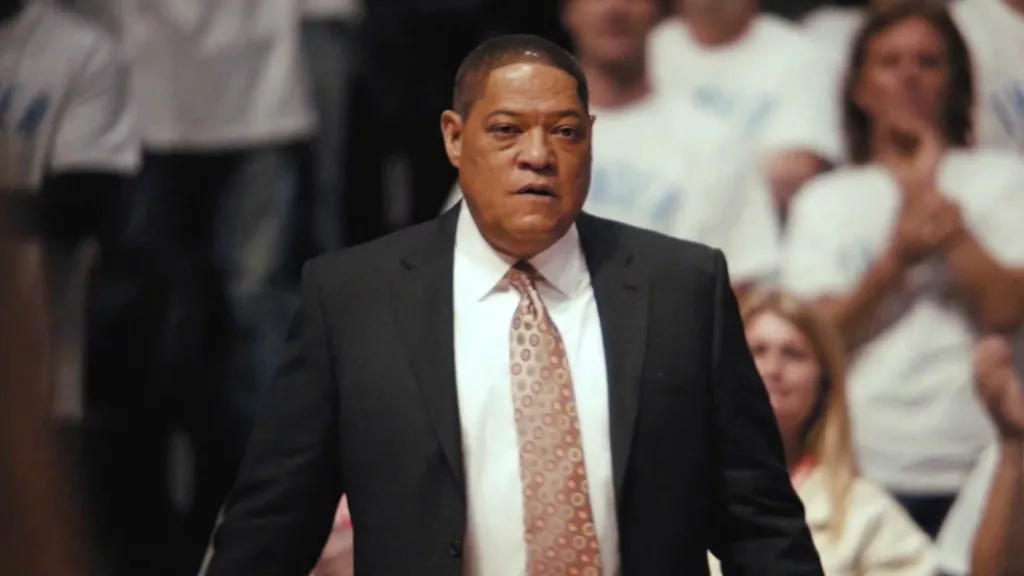The saga of disgraced former Los Angeles Clippers owner Donald Sterling gripped the nation with its explosive exposure of racism at the highest levels of professional sports. As manager of the long-suffering Clippers franchise for over 30 years, Sterling cultivated a toxic environment of neglect and abuse that festered behind closed doors. But in 2014, his disturbing views were laid out for all to hear after his assistant recorded a phone call ranting about bringing black people to games.
The controversy erupted at a time of rising social awareness. The fallout was swift, as public figures from LeBron James to President Obama decried Sterling’s behavior. He was eventually banned from the NBA after a lifetime of discrimination complaints.
FX’s miniseries Clipped digs deeper beyond the initial media storm to probe the human impact and lingering cultural issues the scandal revealed. Drawing from interviews and ESPN’s Sterling Affairs podcast, it illuminates new sides of figures like Clippers coach Doc Rivers, who led his team through the chaos, Sterling’s wife wrestling with denial, and the assistant seeking validation.
Across six episodes, Clipped transports viewers inside the high-pressure drama through interweaving storylines anchored by standout performances. Even for those only casually following the real events, the show commands attention by reframing a notable racial controversy into an entry point for examining deeper societal ills that remain unsolved, from privilege to empowerment within institutions. Going beyond sensationalism, it offers compelling commentary that is still relevant today.
Sterling Affairs
As Laurence Fishburne’s Doc Rivers takes the reins of the Los Angeles Clippers, hoping to turn around the league’s longest-suffering franchise, he immediately butts heads with volatile team owner Donald Sterling, played with aplomb by Ed O’Neill.
Sterling inserts himself prominently and problematically at the sidelines, clashing regularly with both Rivers and the players. Seen as a racist by those around him, Sterling avoids saying too much openly—until he’s recorded during a heated argument with his young associate V. Stiviano, portrayed compellingly by Cleopatra Coleman.
When Stiviano’s covert recording of Sterling angrily scolding her for “bringing black people” to games is leaked publicly, it sparks outrage and protests. Fischerburne captures Rivers’ turmoil as he tries to keep his team focused despite immense media scrutiny and calls for boycotts of the racist owner. Sterling remains blithely unaware of the controversy, while his now-horrified wife Shelly, a standout Jacki Weaver, scrambles to control the damage.
As the story grips watercoolers and Twitter feeds nationwide, the NBA is forced to launch an investigation into one of its most prominent figures. Their response and the eventual removal of Sterling as Clippers owner take center stage in the closing episodes. Clipped examines a real-life scandal that shook a league to its core through the eyes of those at ground zero, particularly Rivers, who is striving to do right while leading men in an impossible situation.
Donald, Doc, Shelly, and V.
Ed O’Neill’s portrayal of former Clippers owner Donald Sterling shows a man who believes his wealth and status shield him from consequences. Blatant racism and treating people, even his wife and employees, as possessions stem from deep-seated entitlement. At the same time, O’Neill ensures a glimmer of humanity remains, from awkwardly doting on his assistant V to clashing with Shelly with a twisted emotional intimacy.
Laurence Fishburne imbues coach Doc Rivers with a steady resolve, guiding his team through turbulence both on and off the court. Not above challenging authority to protect his players, he also exhibits the wisdom and empathy that earn loyalty. Whether counseling teammates or confronting his boss and Shelly, Rivers embodies dignified leadership in the face of injustice.
Jacki Weaver breathes layered complexity into Shelly Sterling, a woman caught between denial and disgust regarding her husband. Displaying both sympathy for and competitiveness with V, she comes to represent the quiet complicity that long enabled Donald’s actions. Weaver leaves us questioning how much was conscious neglect or willful blindness.
As V, Cleopatra Coleman teases out her character’s shadowy motivations beyond social media attention. Seeking acceptance in luxurious circles, she makes visible the human cost of Donald’s racism while still guarding her own secrets. Coleman keeps us guessing as to how much agency or naivety shaped V’s role in exposing hidden wrongs to the light.
Through these performances, Clipped starts an important discussion about racism, power dynamics, and speaking truth to privilege, even if no easy answers emerge from its conclusion.
Clippers Scandal Lays Bare Hard Truths
The new FX miniseries Clipped delves deeply into controversial events surrounding the former owner of the LA Clippers, Donald Sterling. While focusing its story on key figures like Doc Rivers and V. Stiviano, the show illuminates much larger issues around race, power, and accountability.
Viewers see how Sterling’s toxic behavior pervaded the franchise for decades, tolerated solely due to his wealth and status. As the owner, he could demean players and staff without consequence. The leaked recording showing Sterling’s racist philosophy was a rare moment where his insulation from reality cracked open. It forced difficult discussions, not just about one man’s outdated attitudes but also about systemic injustices intrinsic to professional sports.
Clipped avoids easy resolutions, mirroring the complexity of real life. Even with widespread outrage, Sterling’s ouster didn’t dismantle underlying social problems. The show also subverts expectations in how it portrays its subjects. Characters live in the gray area between villain and victim, their actions shaped by outside forces as much as inner demons. Donald in particular emerges as a fully-dimensional figure, not just a stereotypical caricature.
Through it all, social media’s growing influence remains front and center. The proliferation of takeouts after outraged takeouts mirrors the story’s increasing media circus. But Clipped suggests no one truly wins when public discourse decays into performative spectacles over substance. Underneath celebrity and scandal, it finds humanity in all its messy contradictions.
By tackling tough topics yet refusing reductive answers, Clipped sparks important discussions about accountability, privilege, and institutional change. Its multidimensional examination of infamous events leaves lingering questions that will continue to resonate.
Clippers Scandal Brought to Life
The FX series Clipped immerses viewers in the drama of the infamous Donald Sterling scandal that rocked the NBA in 2014. Through strong direction and top-notch performances, the show transports audiences right to the center of the high-stakes action.
Led by Gina Welch, the creative team crafted an experience with tremendous authenticity. Their vision came to life through location shooting and period-appropriate production design. Viewers feel like flies on the wall, observing real places like locker rooms and owner’s boxes. Subtle details make the world feel fully realized, down to the specific fashions and tech of the time.
Standout work comes from stars Ed O’Neill and Laurence Fishburne. O’Neill envelops viewers in the racism and arrogance of Sterling without turning the character into a caricature. Sterling is despicable yet understandable as a man who doesn’t recognize his own faults. Fishburne equally shines as Coach Doc Rivers, bringing grace under pressure and poise to difficult situations.
Supporting actors like Jacki Weaver add nuanced layers, making even peripheral figures feel multidimensional. Weaver taps into both the strong defiance and vulnerability of Shelly Sterling. These performances drive home that real people with desires and flaws populate the story, not just headlines.
Technically, Welch’s direction moves scenes along at a dynamic pace that keeps audiences hooked. She uses montages of archival footage to efficiently fill contexts, while cinematography highlights key emotional beats. Together, these craftspeople elevated real events into riveting drama that holds mirrors to societal issues still relevant today. Under Welch’s command, Clipped brings a controversial piece of sports history to stunning life.
Behind the Scandal
Clipped delves deep into the Donald Sterling controversy that rocked the NBA. Beyond rehashing headlines, it seeks to offer fresh perspective on all involved. The series navigates complex issues with care, though not without a few bumps in the road.
Laurence Fishburne turns in a terrific performance as Doc Rivers, our steady guide through the tumult. He brings gravitas and humanity to a man thrust to the fore in sensitive circumstances. Members of the Clippers team also feel authentic, thanks to their nuanced portrayals, which highlight their very real dilemmas.
Debates emerge around how characters like Shelly Sterling and V. Stiviano are portrayed. Jacki Weaver imbues Shelly with layers of emotion, yet her storyline sometimes overstays its welcome. Cleopatra Coleman manages to find empathy for V despite challenging actions, an admirable feat.
Not all land quite as smoothly. Weighty topics demand near perfection in tone and pacing, but Clipped has a few inconsistencies. An episode of flashbacks disrupts momentum. At times, drama spills into melodrama.
Yet by shining light in darker corners, Clipped starts hard conversations. It acknowledges complexities where others give simplicity. Like the best true stories, it leaves lasting impressions by facing hard truths with courage. While not flawless, its strengths far outweigh its missteps, making it worth discussion and reflection.
The Real Scandal Unveiled
The FX limited series Clipped tells an unflinching story that exposes real scandals lingering beneath the surface. Through compelling performances and vivid storytelling, it brings to light challenges that still deserve open discussion.
Laurence Fishburne leads a standout cast, balancing the humanity of Doc Rivers with his mission to overcome racial obstacles. Ed O’Neill opens eyes to the complexities of prejudice, conveying both the banality and brazenness of discrimination. Elsewhere, Jacki Weaver and Cleopatra Coleman offer multilayered views of those affected.
By prioritizing multiple viewpoints, including players rarely heard, Clipped presents a fuller picture. It acknowledges hard truths about unchecked power and privilege. At the same time, the resilience of those navigating injustice with integrity is affirmed. Though some outcomes disappoint, honoring real truths honors progress.
This limited series delivers a story that remains unfinished. By revisiting stained chapters, perhaps a new understanding can emerge and old wounds can find closure. Overall, Clipped sparks vital reflections, holding an unflinching mirror to see how far we’ve come and how far we have yet to go. For anyone hoping to build a more just world, it deserves open and thoughtful consideration.
The Review
Clipped
With compelling performances and an unflinching look at complex issues, Clipped brings a memorable real-life story to the screen. Though the series has its flaws, on the whole, it sparks important discussion and holds an unflinching mirror to society. While not a perfect story, Clipped tackles its challenging subject with admirable care and merits viewing to draw one's own conclusions.
PROS
- Impressive performances, especially from Fishburne, O'Neill, and Weaver.
- Provided an unflinching examination of complex racial issues and injustice.
- Shed light on perspectives often overlooked and challenged societal complacency.
- Sparked important discussion on topics still relevant today.
CONS
- Pacing was uneven at times and could have benefited from a longer runtime.
- The supporting cast was sometimes outshined by the leads.
- The tone shifted inconsistently between drama and comedy.
- Outcomes didn't provide satisfying narrative closure or catharsis.
